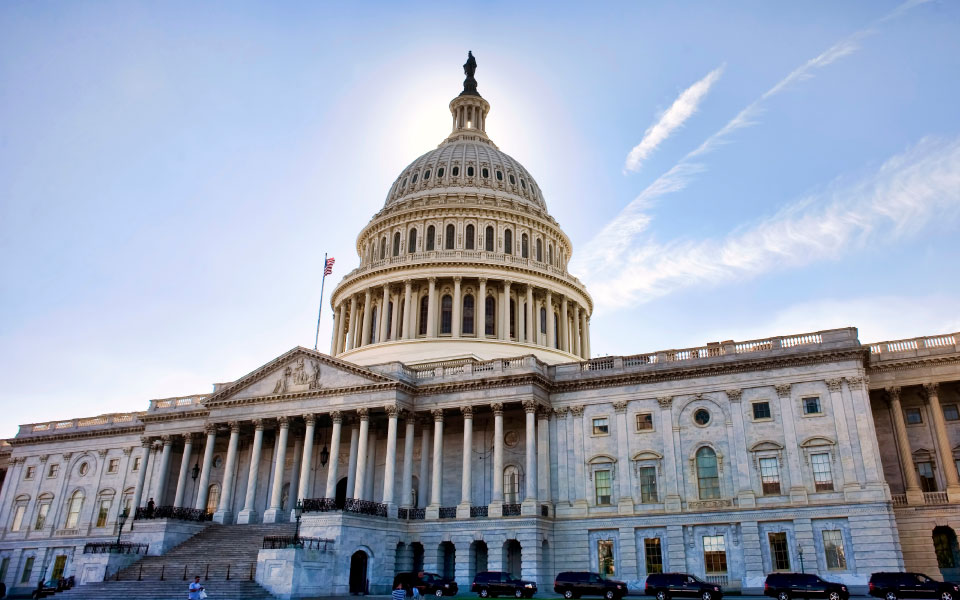The landscape of retirement investing is possibly on the brink of transformation. A recent executive order from the Trump Administration1 aims to open the doors for alternative assets—such as private equity, real estate, cryptocurrency, and permanent capital vehicles—to be included in defined contribution (DC) plans like 401(k)s. This policy shift, which instructs the Department of Labor (DOL) and the Securities and Exchange Commission (SEC) to review and reform existing regulations, could reshape how some Americans save for retirement and what investment advisers and auditors must do to keep pace.
Why the Executive Order Matters
For decades, DC plans have been the primary vehicle for U.S. retirement savings, yet their investment menus have remained largely limited to traditional stocks and bonds. This has arguably been for good reason. Critical fiduciary concerns, and related regulations, have intended to help ensure investment options are in the best interest of plan participants. This, however, has kept DC plan sponsors from investing in private market investments, potentially benefitting from diversification and possibly higher risk-adjusted returns.
The executive order seeks to address these limitations by:
- Broadening participant choice in retirement investment options,
- Potentially improving diversification and risk-adjusted returns,
- Potentially helping workers achieve better retirement outcomes.
By directing the DOL and SEC to reconsider rules that have discouraged DC plans from including alternative assets in their portfolios, the order calls for modernized guidance around fiduciary duties, disclosures, and plan administration. This could mean a new era of opportunities, challenges, and risks for both plan participants and the professionals who serve them.
Opportunities for Investment Advisers and Asset Managers
Product Development and Innovation
Investment advisers and asset managers are poised to benefit from the ability to design and offer alternative investment products tailored for DC plans. These could include:
- Private equity (with limited or indirect exposure to venture capital, which is unlikely to scale to DC plan flows)
- Private/direct real estate vehicles (rather than publicly traded REITs already common in DC menus) and infrastructure vehicles
- Holdings in actively managed investment vehicles that invest in cryptocurrency
- Investments in commodities
- Permanent capital vehicles (PCVs) with transparent governance.
At present, access in DC plans is largely expected to occur through multi-asset structured solutions (e.g., target date funds and managed account programs) managed by investment professionals rather than as stand-alone “core menu” options; plan sponsors should not assume alternatives will be added directly to the core lineup.
As these offerings are developed, advisers and asset managers must balance innovation with the liquidity and valuation cadence commonly used in participant-directed DC plans (noting that ERISA does not explicitly require daily NAV). Traditionally, illiquid alternatives have been at odds with the daily dealing many DC platforms offer , but new structures—such as “evergreen” funds and PCVs—are gaining interest for their potential to provide long-term capital appreciation and more regular (often periodic rather than daily) NAV calculations.
Expanded Fiduciary Role
With greater menu diversity, however, comes greater responsibility and risk. Advisers will be critical in supporting plan sponsors and fiduciaries through the education, due diligence, and ongoing monitoring required for alternative asset strategies. Their expanded role would include but not be limited to:
- Evaluating manager credentials and track records (i.e., due diligence),
- Assessing investment risk and suitability for participant demographics,
- Recommending appropriate fund structures and governance models, and
- Providing clear disclosures to ensure informed decision-making.
Challenges and Considerations for Advisers/Asset Managers
Liquidity and Valuation
The illiquid nature of many alternative investments presents challenges for DC plans, which typically operate with daily valuation and frequent participant trading windows (this is a marketplace convention, not an explicit ERISA requirement). Advisers must consider:
- Structures that allow for regular pricing (e.g., interval funds, semi-liquid vehicles),
- Use of independent pricing agents and fair value methodologies, and
- Enhanced participant education on withdrawal restrictions or gating mechanisms.
Liquidity remains a primary constraint; sponsors and managers should define clear policies for flow management (e.g., gates/queues), cash buffers, and model-level rebalancing so managed accounts and target date funds can meet drift tolerances without operational strain.
Where semi-liquid structures rely on liquid sleeves for cash management, sponsors should weigh the potential erosion of alpha from dilution against the need to support liquidity and rebalancing in volatile markets.
Fee Transparency and Comparability
Alternative assets often feature higher and more complex fee structures. Advisers must ensure:
- Transparent reporting of management and performance fees,
- Clear benchmarking of costs versus traditional assets, and
- Ongoing review of fee reasonableness and impact on retirement outcomes.
Operational and Regulatory Readiness
Advisers should prepare for increased scrutiny and evolving compliance standards, including:
- Enhanced due diligence processes,
- Robust controls and documentation, and
- Coordination with plan administrators and custodians.
Auditor Considerations
The executive order’s push for greater adoption of alternatives in DC plans will directly impact the audit process. Auditors must adapt to new complexities and risks, including:
Valuation and Pricing Risks
Auditors will face heightened challenges in testing the fair value measurements of private equity, hedge funds, and PCV holdings when included in a plan’s portfolio. Key actions would consist of:
- Reviewing management’s valuation methodology and assumptions,
- Testing the accuracy and completeness of third-party pricing reports, and
- Evaluating controls over NAV calculation and participant transactions.
Contract Review and Fee Analysis
With more complex investment agreements and fee arrangements, auditors should:
- Analyze key terms of partnership, subscription, and management agreements,
- Test fee calculations against contract provisions, and
- Assess the plan for compliance with ERISA and, where relevant, SEC guidelines.
Disclosure and Reporting
Auditors must conclude whether the plan’s financial statements and disclosures appropriately include:
- The basis for valuing the newly-allowable investments,
- Investment strategy, risks, and liquidity constraints,
- Performance measurement standards and fee arrangements, and
- Material risks and contingent liabilities.
Internal Controls and Due Diligence
As plan sponsors and administrators expand into alternatives, auditors will need to assess:
- The internal controls over the valuation of hard-to-value investments (i.e., Level 3 investments under Accounting Standards Codification Section 820).
- The design, implementation, and, if applicable, the operating effectiveness of internal controls,
- Documentation supporting investment decisions and ongoing monitoring, and
- The sponsor’s controls over service providers’ functions.
Looking Ahead: Best Practices and Recommendations
The executive order signals a new era of potential opportunity and responsibility for investment advisers and auditors. As the DOL and SEC implement reforms, practitioners should:
For Investment Advisers:
- Stay informed on regulatory developments and guidance,
- Continue to educate plan sponsors and participants on alternative investments as they are not appropriate for all investors at every stage of life,
- Proactively engage with plan sponsors to develop compliant, innovative offerings, and
- Invest in operational infrastructure to support new products.
For Auditors:
- Enhance technical capacity and staff training for auditing alternative assets,
- Update audit programs to address the new valuation, disclosure, and compliance risks,
- Collaborate with clients to identify and mitigate implementation challenges.
Conclusion
Broader access to alternative assets in DC plans may support greater diversification and, if prudently implemented, the potential for improved retirement outcomes, but not without significant risks and challenges. Success will depend on the ability of advisers and auditors to meet the challenges of participant education, product design, compliance, transparency, and risk management. Given current market practice, sponsors should expect access primarily through target date funds and managed account solutions rather than as stand-alone core menu options. By understanding the executive order’s implications and adopting best practices, these professionals can help plan participants potentially benefit from an expanded universe of investment options while safeguarding plan assets from the risks arising from these newly permitted investments.
If you have questions about how these changes could impact your plan or need guidance on navigating alternative assets, contact CBIZ today.
Sources
-
- https://www.whitehouse.gov/presidential-actions/2025/08/democratizing-access-to-alternative-assets-for-401k-investors/
© Copyright CBIZ, Inc. All rights reserved. Use of the material contained herein without the express written consent of the firms is prohibited by law. This publication is distributed with the understanding that CBIZ is not rendering legal, accounting or other professional advice. The reader is advised to contact a tax professional prior to taking any action based upon this information. CBIZ assumes no liability whatsoever in connection with the use of this information and assumes no obligation to inform the reader of any changes in tax laws or other factors that could affect the information contained herein. Material contained in this publication is informational and promotional in nature and not intended to be specific financial, tax or consulting advice. Readers are advised to seek professional consultation regarding circumstances affecting their organization.
“CBIZ” is the brand name under which CBIZ CPAs P.C. and CBIZ, Inc. and its subsidiaries, including CBIZ Advisors, LLC, provide professional services. CBIZ CPAs P.C. and CBIZ, Inc. (and its subsidiaries) practice as an alternative practice structure in accordance with the AICPA Code of Professional Conduct and applicable law, regulations, and professional standards. CBIZ CPAs P.C. is a licensed independent CPA firm that provides attest services to its clients. CBIZ, Inc. and its subsidiary entities provide tax, advisory, and consulting services to their clients. CBIZ, Inc. and its subsidiary entities are not licensed CPA firms and, therefore, cannot provide attest services.















